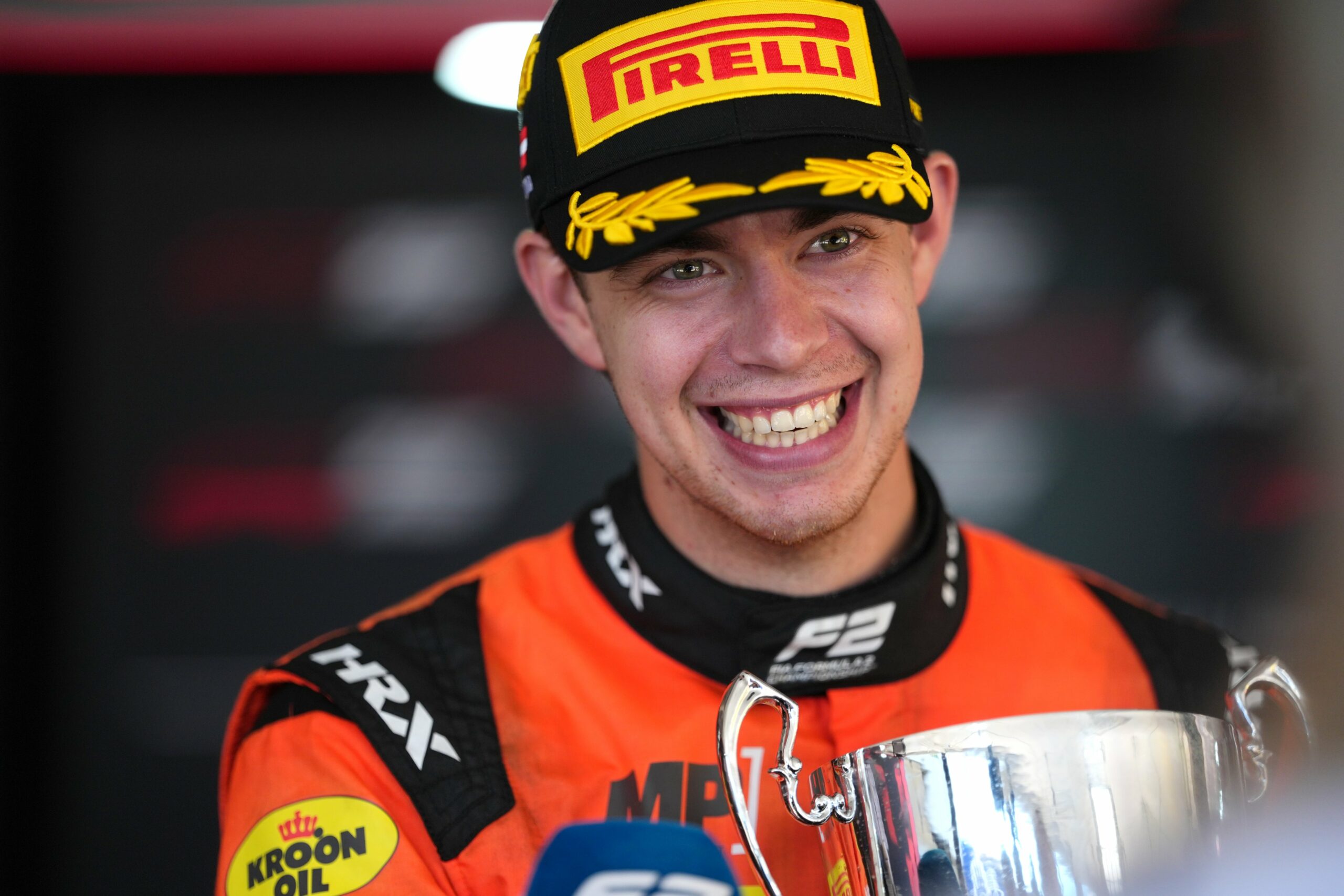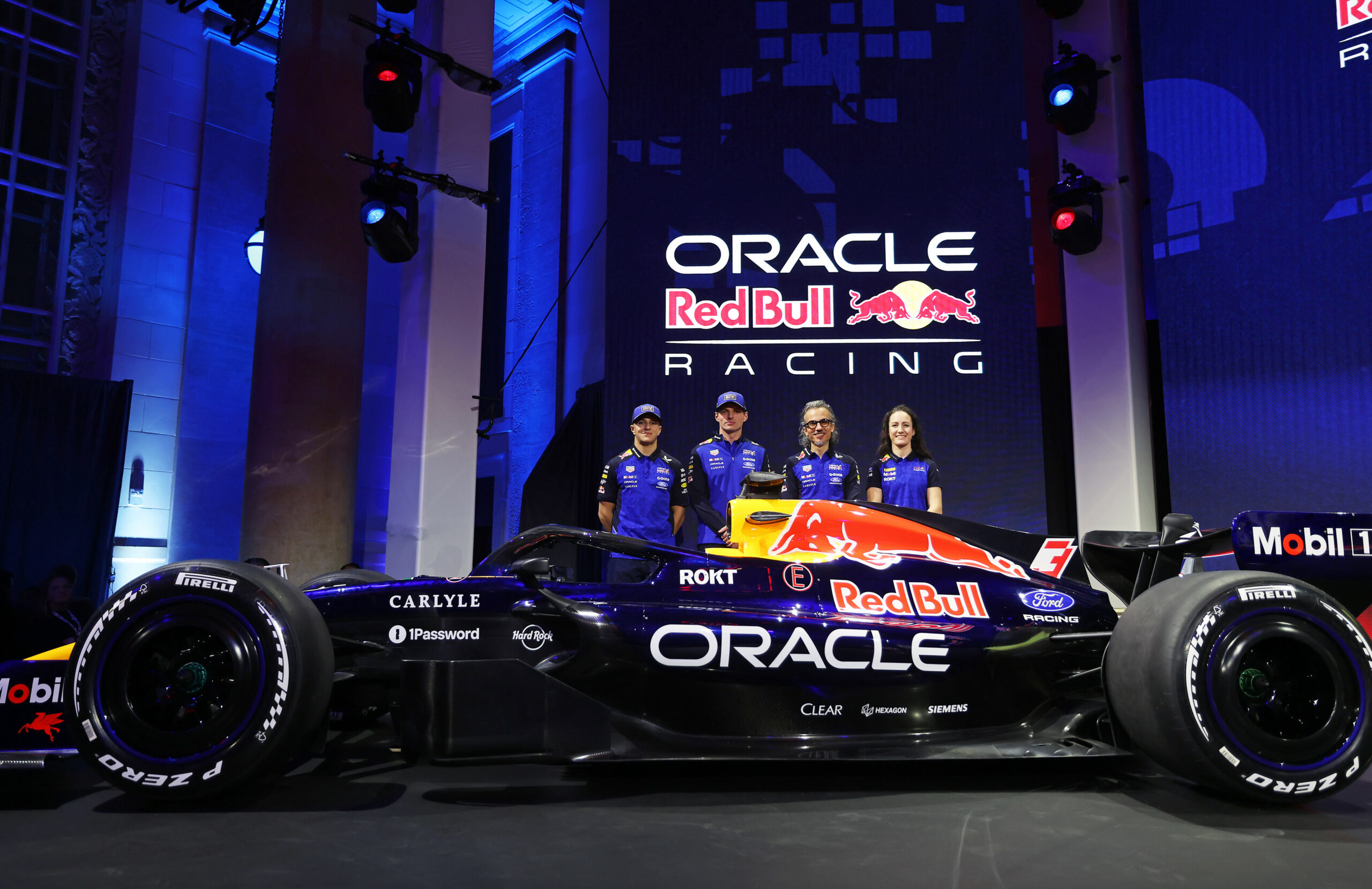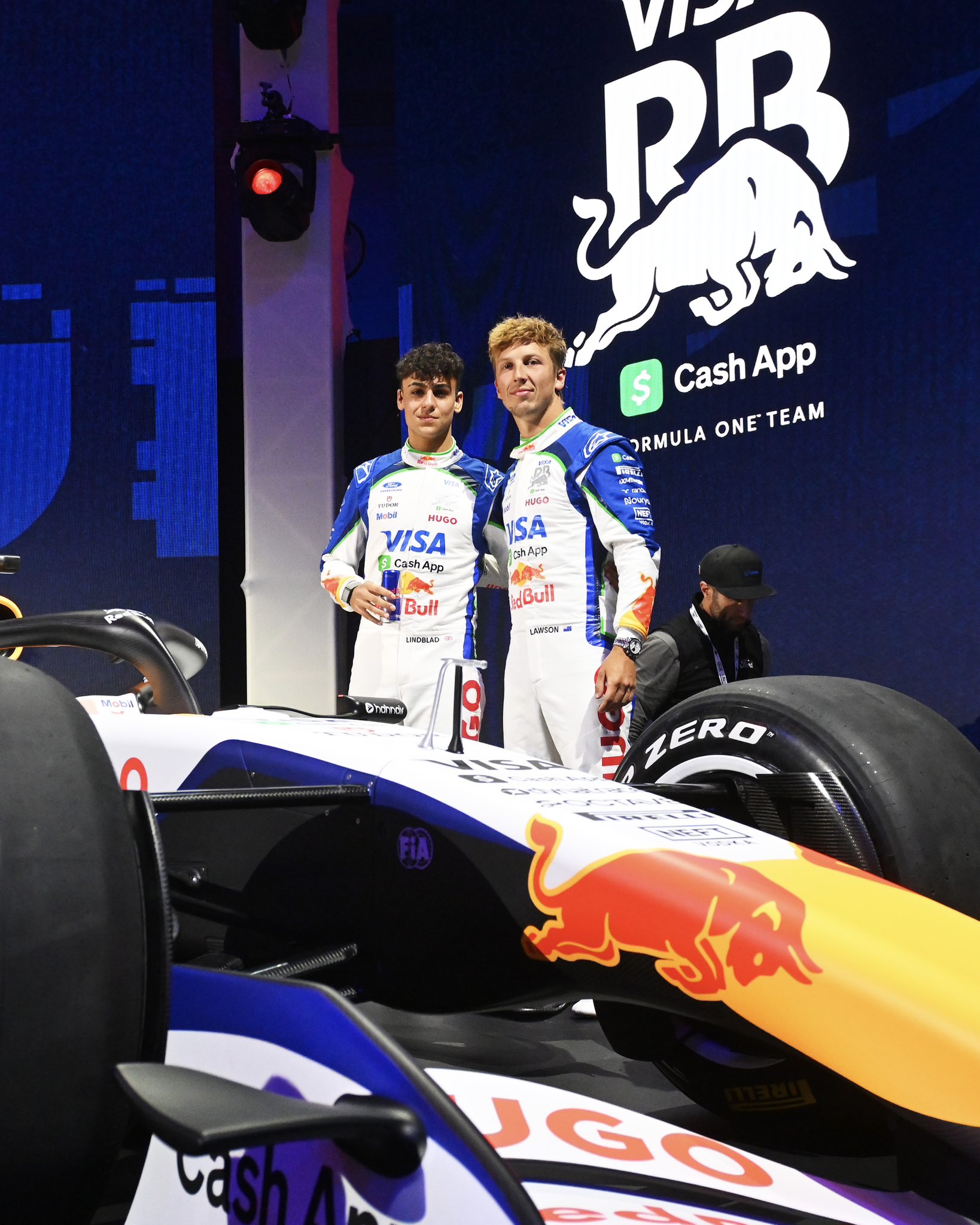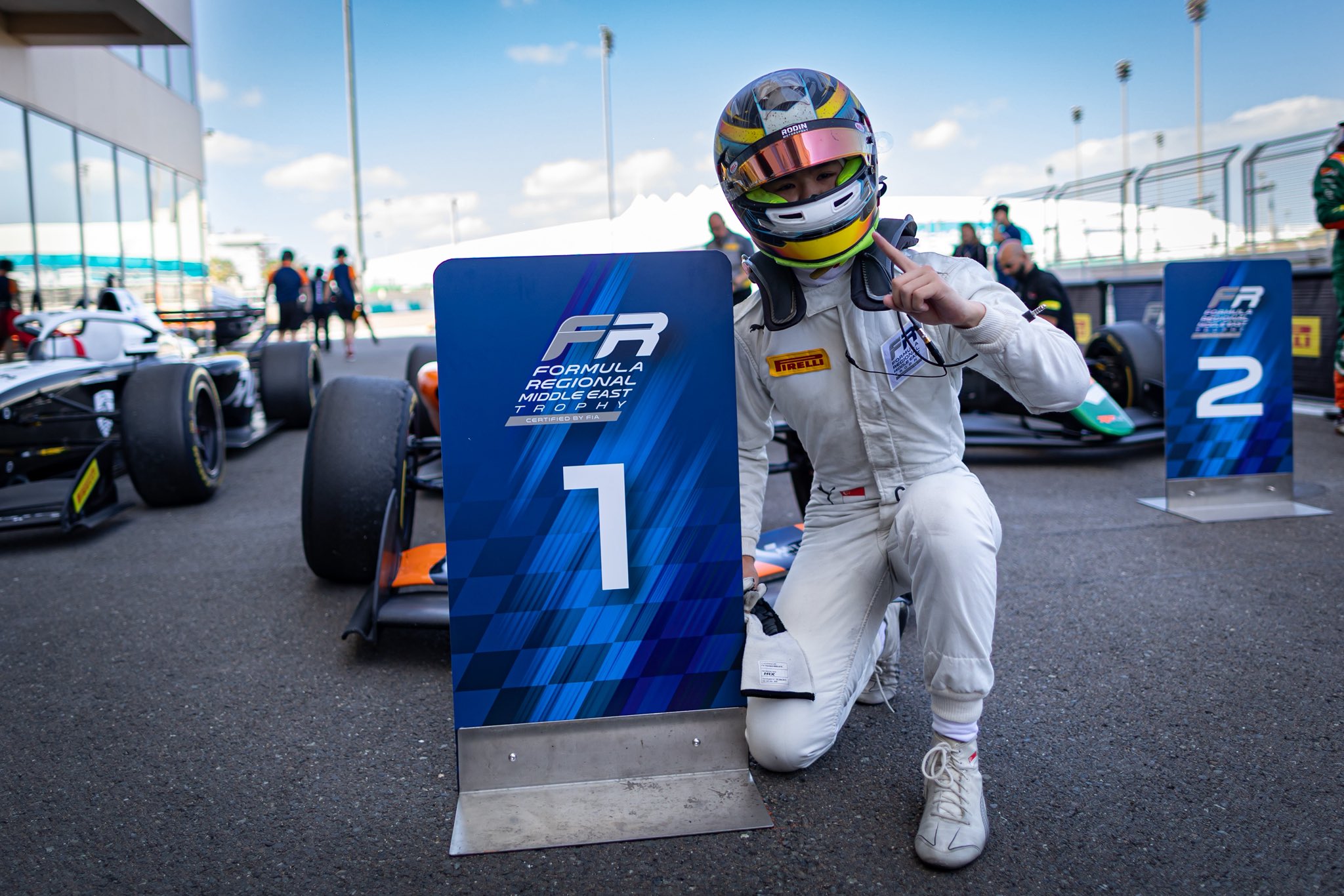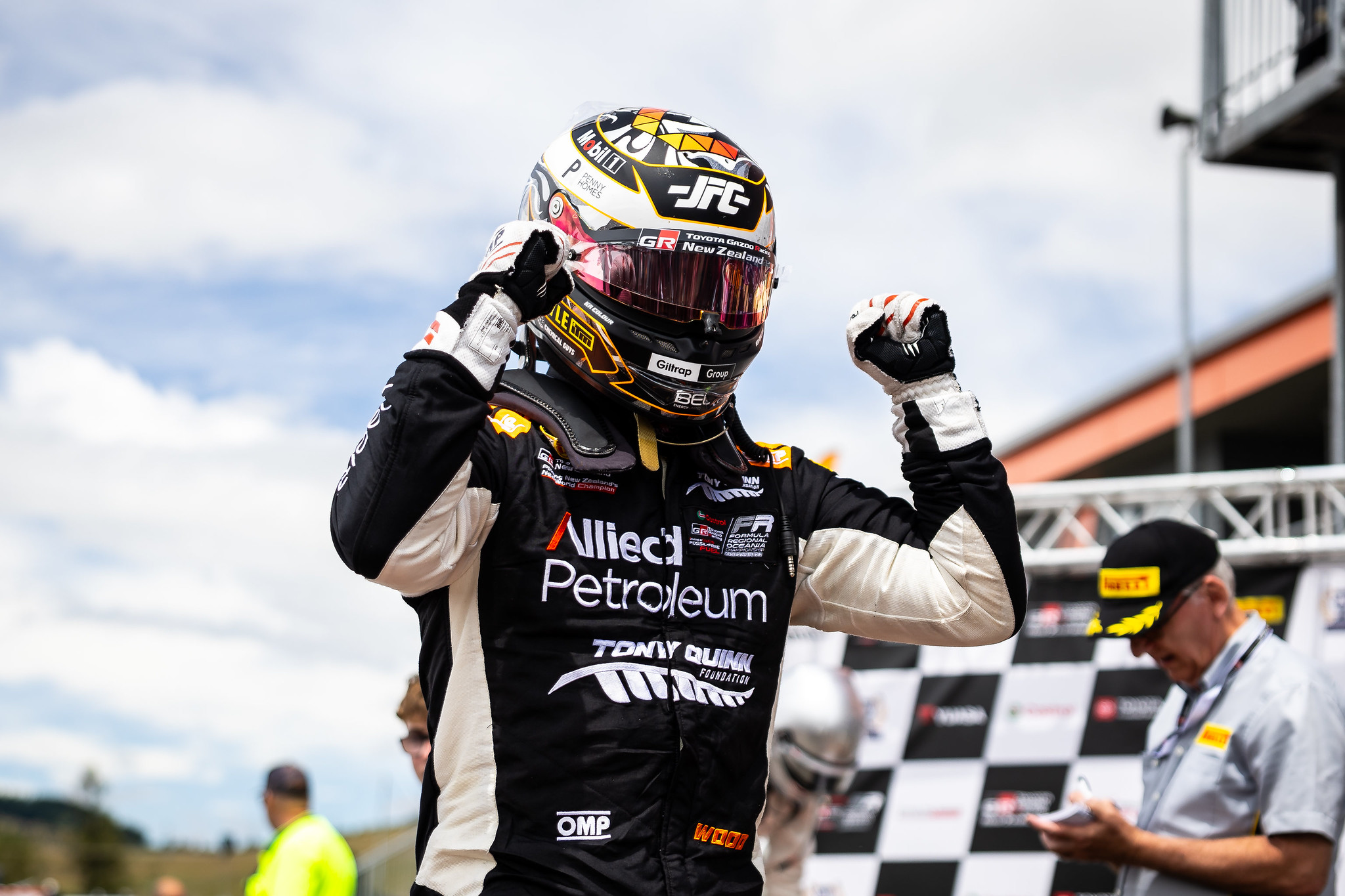It has been five years since Richard Verschoor made his Formula 2 debut. The Dutch driver first raced with MP Motorsport in 2021 before moving to Trident in 2022 and Van Amersfoort Racing in 2023. He returned to Trident for the 2024 season and later rejoined MP Motorsport, replacing Dennis Hauger for the final two rounds of that year. Now back with his debut team, Verschoor is enjoying his most successful campaign to date.
Currently third in the 2025 F2 Championships standings with 135 points, Verschoor finds himself firmly in the middle of a fiercely contested title fight on his fifth attempt. His rise to the top has been anything but easy, forged through years of persistence and hard work. Reflecting on his time in Formula 3 and his earlier seasons in Formula 2, Verschoor acknowledged how those experiences shaped him into the driver he is today.
Early beginnings
Although his Formula 3 seasons were not the most successful, Richard Verschoor reflected on how much he learnt during his time in the junior category. Racing with MP Motorsport, the Dutchman finished 13th and 9th across his two-and-a-half-season campaign, with the standout moment coming in 2019 when he claimed a surprise victory at the Macau Grand Prix — becoming the first rookie to do so since 2008.
Verschoor has since acknowledged that his F3 years marked the start of his real development as a driver. He views that period as a foundation for growth, where the challenges and setbacks helped him mature both on and off the track. Today, he continues to apply those lessons to his Formula 2 campaign, turning past struggles into strengths in his pursuit of the championship.
“F3 for me were not the best seasons, I guess. We had some nice moments, but I remember I had to learn a lot as a driver. To be honest, ever since I started racing in cars, it was for a very long time as a hobby. But since F3, and maybe even my first season in F2, where I really started to learn about performing at a high level.”
Importance of working closely with the team
The MP Motorsport car was far from the quickest on the grid in 2019. Persistent performance issues made it difficult for Richard Verschoor to score points, yet he refused to be discouraged. Throughout his rookie F3 season, the Dutchman worked tirelessly with the team, focusing on improvements and building consistency. His determination paid off the following year, when he claimed his first podium in the series at the 2020 Austrian Grand Prix.
Verschoor has often highlighted how those early struggles taught him the importance of close collaboration with his engineers. He came to understand how effective feedback could influence upgrades, helping to make the car quicker and more reliable. It is a lesson that remains invaluable in 2025, as he now finds himself in the thick of a tightly fought Formula 2 championship battle.
“I really started to learn about building a good car with the team, building a good relationship with the team. Those are the main parts I learned, working together because those are things that bring you the furthest.”
“You are competing against the best drivers and also at that time there is a big competition between the teams. So the better you can work together with the team to improve the car, the better.”
Being one of the younger racers
Richard Verschoor stepped into Formula 3 in 2019 at just 18 years old, making him one of the youngest drivers on the grid, where the average age stood at 19.13. When he graduated to Formula 2 in 2021, he was only 20 — still among the youngest on the grid. For several seasons, Verschoor raced against older and more experienced competitors, which often added to the challenges he faced.
“I think in my first years in F2 and F3 I was still very young compared to other drivers. Obviously, now I am much more experienced but, in my career, I have always been quite young.”
Unlike many of his rivals, Verschoor admitted he never had a constant mentor during his early years in single-seater racing. Instead, he had to teach himself the intricacies of both F3 and F2, learning through trial and error. Now in 2025, the situation has changed. As the veteran of his current team, he partners rookie Oliver Goethe, who openly acknowledges Verschoor as a valuable source of guidance in improving his race pace and overall performance.
“These last two seasons have been the first where I have been the oldest. But I never really had someone with me through my single-seater career that really explained everything to me, so I had to figure out everything myself.”
“I think only during my time in F2 have I understood how to work on setups. Understanding things like that which is very important in Formula 3 and Formula 2, and especially in my first two years I missed that a little.”
The jump from F3 to F2
The progression from Formula 3 to Formula 2 is a steep learning curve that challenges even the most talented rookies. The step up is not only about pace but also about endurance and adaptability. The F2 car is significantly heavier yet faster than its F3 counterpart, demanding greater physical strength and stamina from the driver. On top of that, rookies must quickly adapt to more advanced racecraft, while also learning how to fine-tune a far more complex car setup. This increased pressure inevitably tests mental resilience — a vital quality for those aiming to progress to Formula 1.
For Richard Verschoor, the transition was made even more difficult by circumstances beyond his control. His rookie season in 2021 coincided with cost-cutting measures introduced in response to the COVID-19 pandemic, which resulted in a reduced calendar of just eight races — nearly half the length of today’s 14-round 2025 schedule. Verschoor’s campaign proved even shorter, as he left the series after the sixth round in Jeddah. He did, however, make a brief return for the finale at Abu Dhabi with Charouz Racing, ensuring he ended the year with valuable experience despite the disrupted season.
Struggling to adapt
Richard Verschoor has openly admitted that adapting to Formula 2 was far from straightforward. The Dutchman recalled how difficult it was to adjust in his rookie year, made worse by the reduced calendar that left him with fewer opportunities to learn and improve.
“I don’t think the jump from F3 to F2 is that big, to be honest. Of cours,e the car is a bit quicker, a bit heavier, the tyres are a bit different, but mainly it’s getting used to the heaviness of the car rather than the speed.”
“I remember I didn’t like the format of my first F2 season, and I think I did just six rounds that year, so I did only half a season. It was a bit tricky for me to improve because there were so little races, there were big gaps, because of Covid, so it made it tricky for me.”
Maiden victory
Despite the struggles of the opening half of his rookie Formula 2 campaign, Richard Verschoor still managed to deliver several points finishes. As he gradually adapted to the car and settled into the team environment, his performances began to show greater consistency and maturity. By the end of the year, he had climbed to 11th in the championship standings — an impressive recovery considering the shortened and disrupted season.
The defining moment came at Silverstone, where Verschoor claimed his maiden Formula 2 victory. That breakthrough win not only marked a career milestone but also served as a crucial turning point. It gave him the confidence and self-belief that he could compete at the very front of the grid, a mindset that has continued to shape his progress in the years since.
“But the first win, it was a nice weekend at Silverstone. I remember the car was very strong and we did a good job. I think we were P3 or P4 in Qualifying, and we won the first Sprint Race, and we finished fourth after a nice battle with Oscar [Piastri] in the Feature Race.”
Bringing the lessons on track
Throughout his journey in both Formula 3 and Formula 2, Richard Verschoor has experienced the full spectrum of single-seater racing — from podiums and victories to DNFs and difficult campaigns. Each season, whether successful or challenging, has provided lessons that shaped him as both a driver and a person. Reflecting on his development, Verschoor admitted that these experiences now play a crucial role in his approach to racing and even in his life beyond the cockpit.
“I’ve learned a lot, as a person and a driver, and I feel like all the experience I have had in my F2 career I can really use it now.”
That confidence, however, has not always been present. Verschoor acknowledged that in 2024 he struggled to channel his prior experience into improving the car, a factor he believes contributed to a difficult season. He admitted that while he could identify issues and provide feedback, the results never followed.
“That’s something I really struggled with last year, putting my experience in the setup, so I was able to explain what was happening, but in the end, we still did not get the results. It was a bit of shame, but at the moment where I am at with MP Motorsport, whenever I am telling them what is going on, they can really adjust in a way that I want them to, and we can make it work.”
Working at a high level
Now back with his debut team, Verschoor believes that stronger communication and a more effective working relationship have been decisive in his improved form. Combined with the car’s competitiveness, he sees this as a key reason for his success in the 2025 campaign.
“I think that’s why this year is working out much better, because first of all, the pace is very strong and the way we are working is at a high level.”

